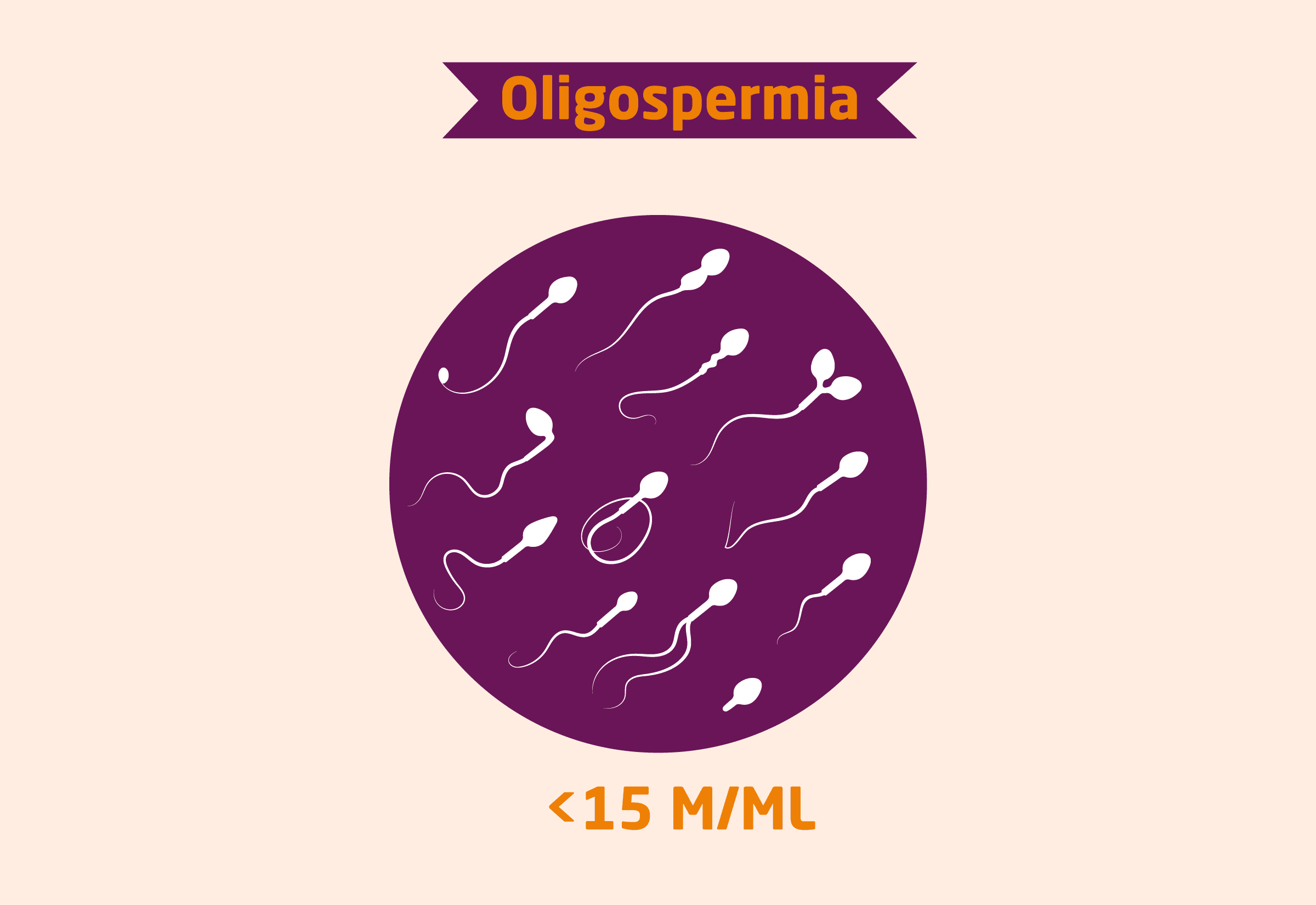
Enhancing Sperm Count Oligospermia
Enhancing Sperm Count in Oligospermia
Oligospermia is a significant factor in male infertility, with the WHO defining it as a sperm count of less than 15 million sperm per milliliter of semen. Its etiology is complex, and it requires a comprehensive assessment to identify contributing factors, which can range from hormonal imbalances to lifestyle choices.
Oligospermia Causes:
Identifying the root causes of oligospermia is essential for effective interventions. The causes include:
- Hormonal Dysregulation: Hormonal imbalances, especially involving testosterone, FSH, and LH, can lead to decreased sperm production.
- Varicocele: Varicoceles, a common issue where testicular veins become enlarged, are surgically correctable and can improve sperm count.
- Reproductive Infections: Infections in the male reproductive tract can adversely affect sperm production and quality if left untreated.
- Toxic Exposures: Exposure to environmental toxins and chemicals is another factor that may impact sperm production.
- Genetic Factors: Genetic predispositions can also play a role in oligospermia, underscoring the importance of genetic testing where applicable.
- Systemic Conditions: Medical conditions like diabetes and thyroid disorders may contribute to oligospermia.
Oligospermia Diagnosis:The WHO guidelines for diagnosing oligospermia mandate a comprehensive assessment, including a physical examination, semen analysis, and hormonal assays. This multifaceted evaluation helps determine the underlying causes and guides therapeutic efforts effectively.
The Role of HCG, FSH, and LH:
- Human Chorionic Gonadotropin (HCG): HCG is a hormone that mimics luteinizing hormone (LH) in the body. It can stimulate the Leydig cells in the testes to produce more testosterone. In some cases of oligospermia caused by hormonal imbalances, HCG therapy can be prescribed to boost testosterone levels, which may improve sperm production.
- Follicle-Stimulating Hormone (FSH): FSH is crucial for spermatogenesis, the process of sperm production. When FSH levels are low, it can result in reduced sperm production. In cases where oligospermia is due to insufficient FSH, FSH replacement therapy may be considered under medical supervision.
- Luteinizing Hormone (LH): LH plays a role in regulating testosterone production in the testes. Low LH levels can contribute to hormonal imbalances that affect sperm production. In some instances, LH therapy may be recommended to restore testosterone levels and subsequently enhance sperm production.
Oligospermia Treatment:
- Lifestyle Modification: In accordance with WHO recommendations, a holistic approach entails adopting a balanced diet, engaging in regular physical activity, and abstaining from tobacco and excessive alcohol consumption.
- Medications: Hormonal imbalances may be addressed with pharmacological interventions following professional evaluation.
- Surgical Correction: Surgical procedures, particularly for varicocele correction, have proven effective in increasing sperm count.
- Assisted Reproductive Techniques (ART): In cases of severe oligospermia, ART, including intrauterine insemination (IUI) and in vitro fertilization (IVF), may be recommended to enhance the prospects of successful conception.
- Nutritional Supplementation: Evidence supports the utility of certain supplements, like zinc, folic acid, and antioxidants, in augmenting sperm count and quality, though medical supervision is imperative.
Sperm Health and Fertility: Emphasizing sperm count improvement alone is insufficient; optimizing sperm health is equally critical. Proper nutrition, stress management, and periodic sexual activity are significant components in enhancing sperm quality and motility, and consequently, fertility.
The challenge of oligospermia, as recognized by the WHO, demands a meticulous approach. With the guidance of a gynaecologist and andrologist the journey to augmenting sperm count and quality offers hope for individuals and couples grappling with infertility. Science-backed strategies, encompassing diagnosis, tailored treatments, and hormonal interventions, lead the way toward fulfilling the dream of parenthood.

